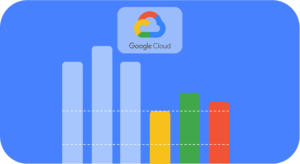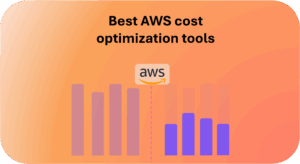The reason we started Holori goes back to our first startup where we developed software solutions for the 3d printing industry.
At this company we were developing an algorithm to detect print failures and for this we had to shift to a Cassandra database. At some point our team and especially our Data Scientist needed more computing power, large disk space and heavy IO performances to run some tests on AWS and we of course accepted.
We didn’t realise back then the cloud costs to perform intensive data tests on the cloud. Few days later, we found out the bill was way beyond our expectations.
We were very surprised and had to ask our Data scientist to stop the computing tests…
Overall we must say that we were a very tech startup with mostly technical costs and the cloud was our second cost just after the salaries.
Our CTO was spending lots of time on AWS console trying to limit the bill of course but there are just some costs you can’t drive down at some point.
After selling our first startup, we were wondering what we would do next and were eagerly looking for a new technological adventure. At some point we heard about those spot instances or preemptible VMs as some cloud providers call them.
This is how with my former co-founder we fell in love with cloud technologies. Spot instances are unused capacity that cloud providers are offering at a discount price. AWS, Azure or GCP are claiming that those instances can be available at up to 90% discounts compared to on-demand prices. The price of Spot instances varies in real-time depending on the bid & ask.

We both have a financial background and we directly thought about the savings we could have made if we had known about this earlier and were wondering about the arbitrage that could be made between the different spot markets from the different cloud providers.
At this stage we were pretty ignorant about this new industry but immediately imagined a huge potential behind this idea based on our previous experience with important cloud costs in the past.
The spot instances as it reminded us of the trading industry applied to the cloud.
That’s how we decided to build a concept for the cloud industry with the aim to reduce cloud costs while taking advantage of the possible arbitrage between the cloud providers and the spot market.
The roadmap is simple, the first step is to bring transparency to the market and compare cloud provider services. Basically we don’t want to limit ourselves to arbitrage on the spot market but we believe that this could be applied to all the services that cloud providers offer.
For example we started by downloading the AWS public catalogue and found out that AWS was offering 166 services. Of course everybody knows about AWS EC2 or AWS S3 but nobody has the complete knowledge about the full AWS catalogue.
On top of this we discovered that the cloud prices vary based on the datacenter localization and that prices are updated on a regular basis.
Of course cloud catalogues are pretty huge at other major cloud providers such as Google Cloud, Azure, Alibaba and that’s why it is so difficult for devops or more generally IT people to choose where they want to host their software.

To help IT people, devops forecast their cloud bills major providers have developed calculators such as AWS pricing calculator, Azure pricing calculator, GCP pricing calculator … Even though those calculators are helping IT people to estimate their future cloud expenses they are not optimizing the cloud costs for them. For example they are not suggesting that if you take the datacenter located in Belgium you could save up to 10%.
And what if you look for the cheapest options between multiple cloud providers ? Then you need to go on multiple cloud providers calculators and try to configure manually something cheap.
Well, this takes time and we believe that there is just a better answer to this problem and this is why we are introducing Holori to the market.
Holori will be the first cloud comparison engine comparing most cloud providers’ real catalogues. This way devops/IT will save time and money choosing cloud providers.
The cloud market is very similar to the travel industry in a way that you have multiple cloud providers with many offers that vary in real-time. For this the travel industry found answers through comparison engines such as Skyscanner, Liligo …
We found it very awkward that the cloud industry that is the most digital industry by its nature doesn’t have similar services.
Maybe some of you remember that to book flight tickets at good old times, we had to go to travel agencies and they were trying to find the cheapest price. In a sense the travel agencies of the cloud market are the cloud consultants.
Cloud consultants have for sure an expertise that is still too rare within companies and therefore they can be of added value when it comes to implementation but do you think they are totally neutral when pitching the cloud vendors ?
Of course not and it’s probably not in your company’s interest to be working with only one cloud vendor or one cloud consultant. We strongly believe that companies will all adopt a multi-cloud strategy in the near future to optimize costs.
By now I think you got it, we at Holori want to bring to the cloud industry a digital answer to cloud costs management making sure consultancy will be used only when technology can’t tackle the issue anymore. We will push for maximum automation.
Stay in touch …





